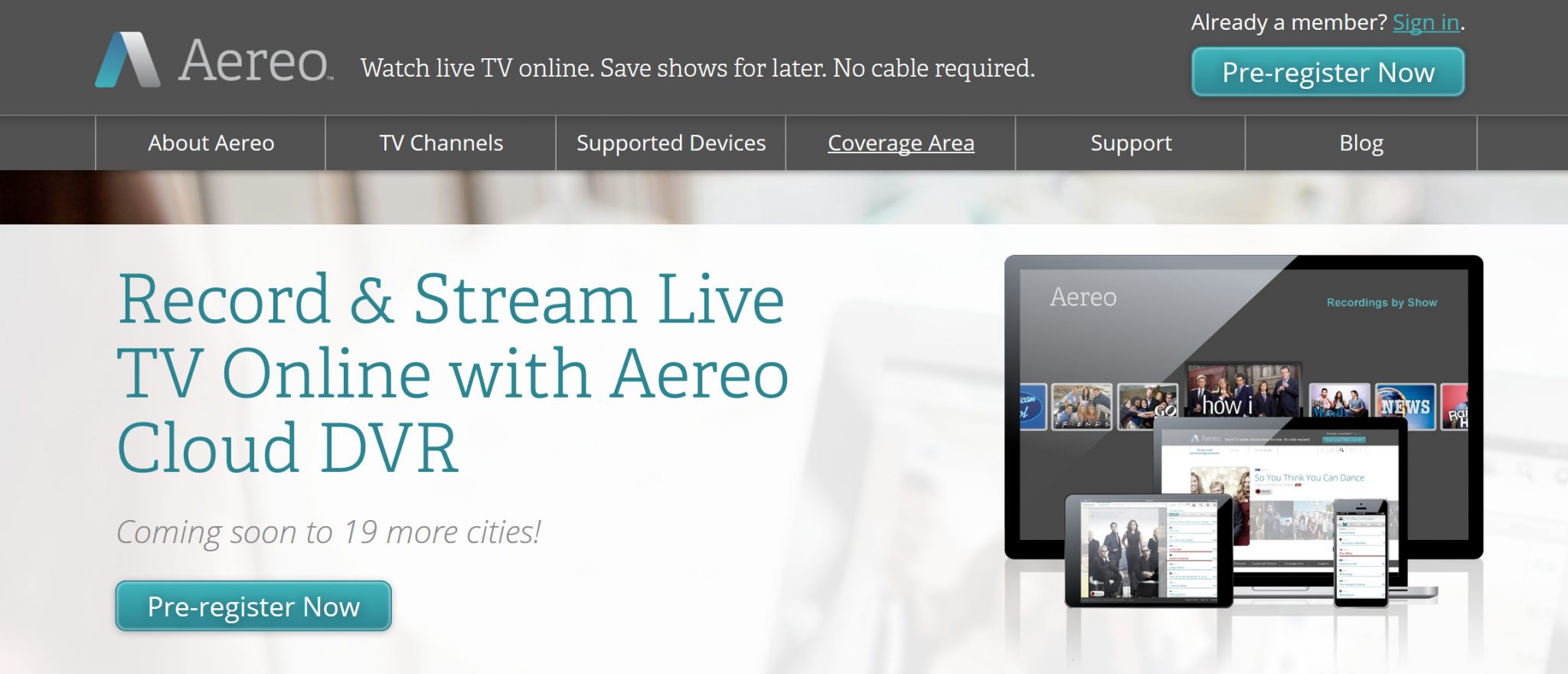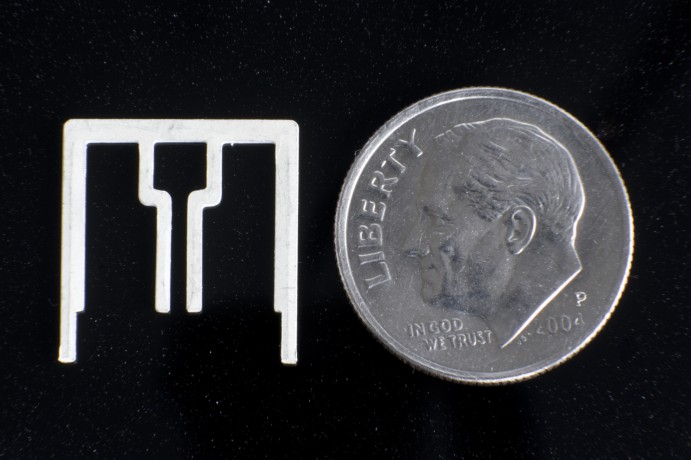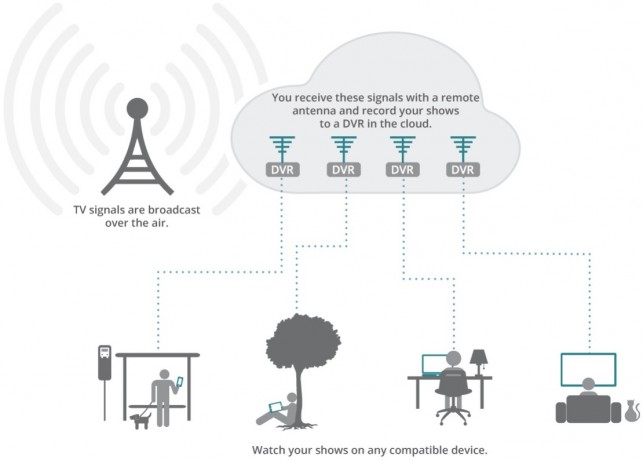
by Sheren Javdan
April 23, 2014
Aereo Inc., a New York Corporation incorporated in 2010, will go head to head in a Supreme Court case against the nation’s largest broadcast companies on Tuesday. A decision, that can change the future of the television industry, is anticipated some time this summer.
Aereo is a startup Internet video company founded by Chet Kanojia and backed by Barry Diller, the media mogul behind Fox Broadcasting Company and USA Broadcasting.
HOW DOES IT WORK?
The startup company has changed the way people watch television. Previously, to receive a television signal, viewers had to resort to using archaic and cumbersome antennas resulting in mediocre video quality. Now, Aereo uses a cloud system with tiny antennas the size of a dime to access and collect antenna signals of available local stations for free. The content is then transmitted to customers through the small antennas rented to Aereo customers for only $8-$12 a month.

Aereo antenna is the size of a dime.
Although the cloud antennas are small and remote, the signal is still great with super-fast Internet connection. Aereo is compatible with most desktop browsers, tablets, and smartphones so no external hardware is required. Aereo is also compatible with AppleTV and the Roku. Users simply launch Aereo on their compatible devices and can watch and record their choice of television from anywhere an internet connection is available.
Aereo is currently available in 11 cities including New York, Boston and Miami but has plans to expand in the future.
LEGAL ISSUES
The major broadcasting networks first brought suit against Aereo in 2012, a few weeks after the startup was first introduced in New York City, claiming the company’s strategy undermined their business.
Although signals are freely dispersed over public airwaves, most Americans get them through private cable and satellite companies. Those companies pay the stations licensing fees for the right to retransmit the signals.
The startup company does not pay retransmission fees, also known as licensing fees, to the broadcasting networks producing the television programs. Licensing fees are an amount paid for the use of a copyrighted item. These fees are a major source of revenue for the broadcasting networks who fear Aereo’s practice may stop other cable and satellite companies from paying the fees in the future.
In this case, Aereo does not have the right to broadcast copyrighted material without first paying the broadcast networks the licensing fees. The startup is using copyrighted material, gaining a profit, and not paying the copyright holders their fair share. This has put Aereo in the center of a heated argument in the Supreme Court.
Copyright laws give the copyright holder the exclusive right to perform the work publicly. The major broadcasters such as ABC, CBS and NBC are outraged and claim that the startup company’s broadcasting of material qualifies as “public performance” under the copyright laws and is transparent theft.
The startup claims that their services are completely legal since they only do what is already being done. Aereo goes on to say that “millions of Americans already do [it] at home – hook their television sets up to antennas and watch free TV.”
SUPREME COURT
The formal issue sitting before the Supreme Court is “whether a company ‘publicly performs’ a copyrighted television program when it transmits a broadcast of that program to thousands of paid subscribers over the Internet.”
On Tuesday, the Supreme Court will hear oral arguments against the startup by ABC, CBS, NBC and other major broadcasting networks. The broadcasters will argue that Aereo is similar to other cable and satellite firms that must pay licensing fees to rebroadcast their shows.
WHAT THIS MEANS FOR TELEVISION
If the Supreme Court rules in favor of Aereo, the decision would injure the lucrative broadcasting industry. The cable and satellite companies pay the networks billions for the right to rebroadcast television.According to a study done by research firm SNL Kagan, licensing fees are “projected to reach $4 billion this year and $7.6 billion by 2019.” This is why the broadcasting networks are so eager to win Tuesday’s Supreme Court case.
The broadcasting networks claim a decision in favor of Aereo would force them to remove their free programs and move them to paid channels such as Showtime. Furthermore, the NFL and MLB who support the broadcasting networks, have threatened to move popular broadcasts such as the Super Bowl and World Series to cable should the Supreme Court rule in favor of Aereo.
For the public, Aereo’s victory would become their victory. The expensive bundles forced onto them by the broadcasting networks would become obsolete. Popular programs that cost a fortune could finally become available over the Internet in a convenient and affordable manner.
Topics: Aereo, Copyright, Intellectual Property, Small Business, Startups











